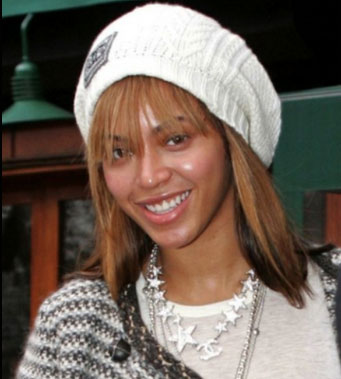Milwaukee, NYC and Poverty Deniers
Sin
A young me
So somewhere along the line somebody thought it was a good idea to make light of poverty in Milwaukee because of the stereotypes they have of poverty in New York City.
Let's get this straight...
I didn’t just have an ‘aha’ moment. I didn’t seek to drag people into relentless rants about poverty politics one day. I talk about poverty for breakfast, lunch and dinner. I’m not staying up late nights convincing people that my childhood in Milwaukee was so terrible that I can barely go on with my life. That just simply is untrue. It’s not necessarily genius to tell one’s story of poverty. It’s not a new or innovative idea to write about what it means to grow up poor in America.
But it was important to me to elevate and publicize the trauma of poverty in small urban cities like Milwaukee.
My mother, who has lived in Milwaukee most of her life, is convinced that poverty in Milwaukee can’t be bad in comparison to larger cities like New York. Or, even worse, that poverty in Milwaukee can’t be expressed with contempt. But the truth is, I saw those very comments on this blog. Of course criticisms tended to converge on the familiar and limited argument that people should not speak about poverty as anything less than a triumphant experience, especially since it ‘can’t be as bad as New York City’s poverty’.
Oh right, and how exactly do you know?
Milwaukee is not New York City for a whole host of reasons but namely because of its sheer population difference. New York City is 16 times larger than Milwaukee. It is depicted in movies like New Jack City and Precious. It is rapped about in songs like Hard Knock Life and Hate it or Love It. It is showcased in television shows like New York Undercover and Law and Order. Take any Spike Lee movie and the average American thinks they have a good understanding of New York City poverty. Try to think of songs, movies, and popular culture that depict poverty in smaller urban cities like Milwaukee, Flint, Cleveland, or even St. Louis and you may come up with a handful. But poverty in these cities are equally as important and should remain stories for people to learn about as valid examples of despair.
While I believe the arguments of poverty deniers that ‘poverty in Milwaukee is not that bad’ and is ‘not worse than New York City’ are fundamentally wrong, they tend to resonate with people for several reasons. One, we as Americans tend to be drawn to a culture of resiliency. It doesn’t matter the trauma, we are supposed to be stronger, right? Two, people are convinced through the media that they know more about New York City than they actually do. Finally, people tend to mistake their own personal experience in a city or region for a shared experience. Because you were poor in Milwaukee and feel just fine doesn’t mean that the experience wasn’t deeply damaging to the next person (and vice versa). And since you have never experienced poverty in New York City or Milwaukee or anywhere else, how can you accurately tell me how I felt? And why are you interested in distancing yourself from me by ‘otherizing’ my poverty?
I'm really concerned that there are people who believe that if poverty doesn’t happen in the Marcy Housing Projects of Bedford Stuyvesant as outlined in a Jay Z song then poverty has to be outright denied, tempered down, or seen as some victorious hazing exercise. But I didn’t grow up in Marcy, I grew up in Milwaukee. There were not a lot of rap songs helping me cope with that. And I didn’t feel strong, or proud, or tough, I just felt hurt. I was hurt that I had to see my brother’s face lay bare on the concrete with a police’s gun pressed on his cheek. I was hurt that my mother worked relentless hours and couldn’t make ends meet. I was hurt that I couldn’t afford college application fees. I was hurt when I saw empty refrigerators, broken stoves, broke down cars, and empty food stamp books.
Comparing Milwaukee to New York City, doesn’t elevate Milwaukee in any way. Comparing the poverty people face in Milwaukee by using stereotypes of New York City compromises the real, valid, and equally as disastrous conditions people face in Milwaukee each and everyday. Milwaukee doesn’t have to be some fantasy oasis in order for us to actually see poor people walking down North Avenue. I get it: Reading about poverty doesn’t elicit happy thoughts from people. Hearing that your hometown is not Pleasantville, is probably astonishing to people who are oblivious to it. But we can’t continue to be ashamed to name it. We can’t continue to deny it exists on a sizable scale. We can’t continue to think that people in Milwaukee are accidentally and only temporarily poor while people in New York City are institutionally and permanently poor. It’s called denial.
How do we move past polarization and comparison? How do shift the conversation past individual responsibility and geographical uniqueness to collective accountability? How can we all meaningfully contribute to a productive conversation (and then action) about addressing poverty if we are disillusion to poverty in our own backyards?
I guess we just say it.
This isn’t the Poverty Olympics. Nobody’s city wins by making another look bad. Poverty is just as merciless in well-known cities as well as in historically underrepresented cities like Milwaukee. Don’t be a poverty denier. It’s time we give a voice to the voiceless.



![Ike Turner meme [ I do not own this picture and I do not who does]. ](https://images.squarespace-cdn.com/content/v1/5287f18de4b016c0d8325ff1/1387760870762-JQ70OA4WAJBRBVYZTCN3/photo+%281%29.PNG)

